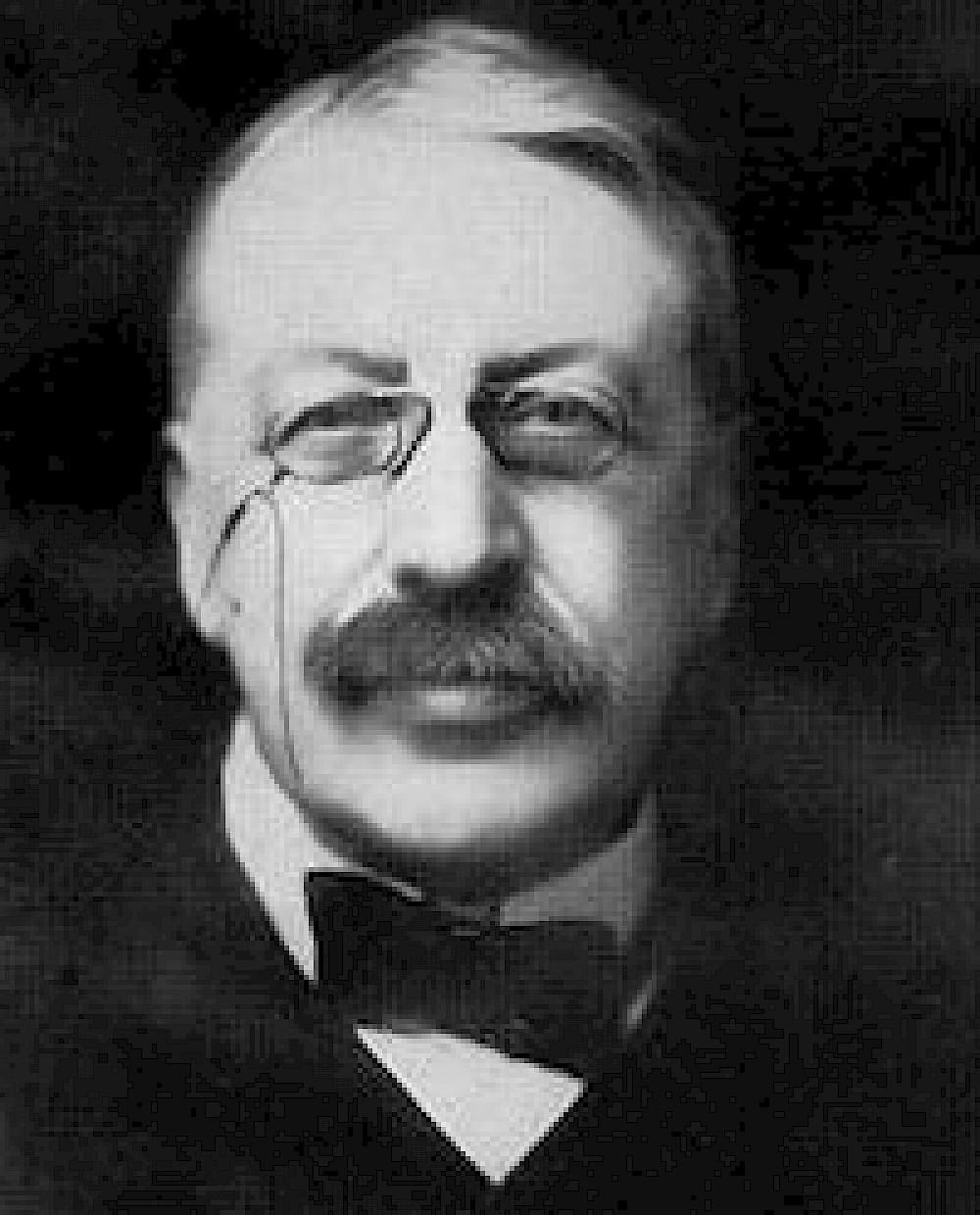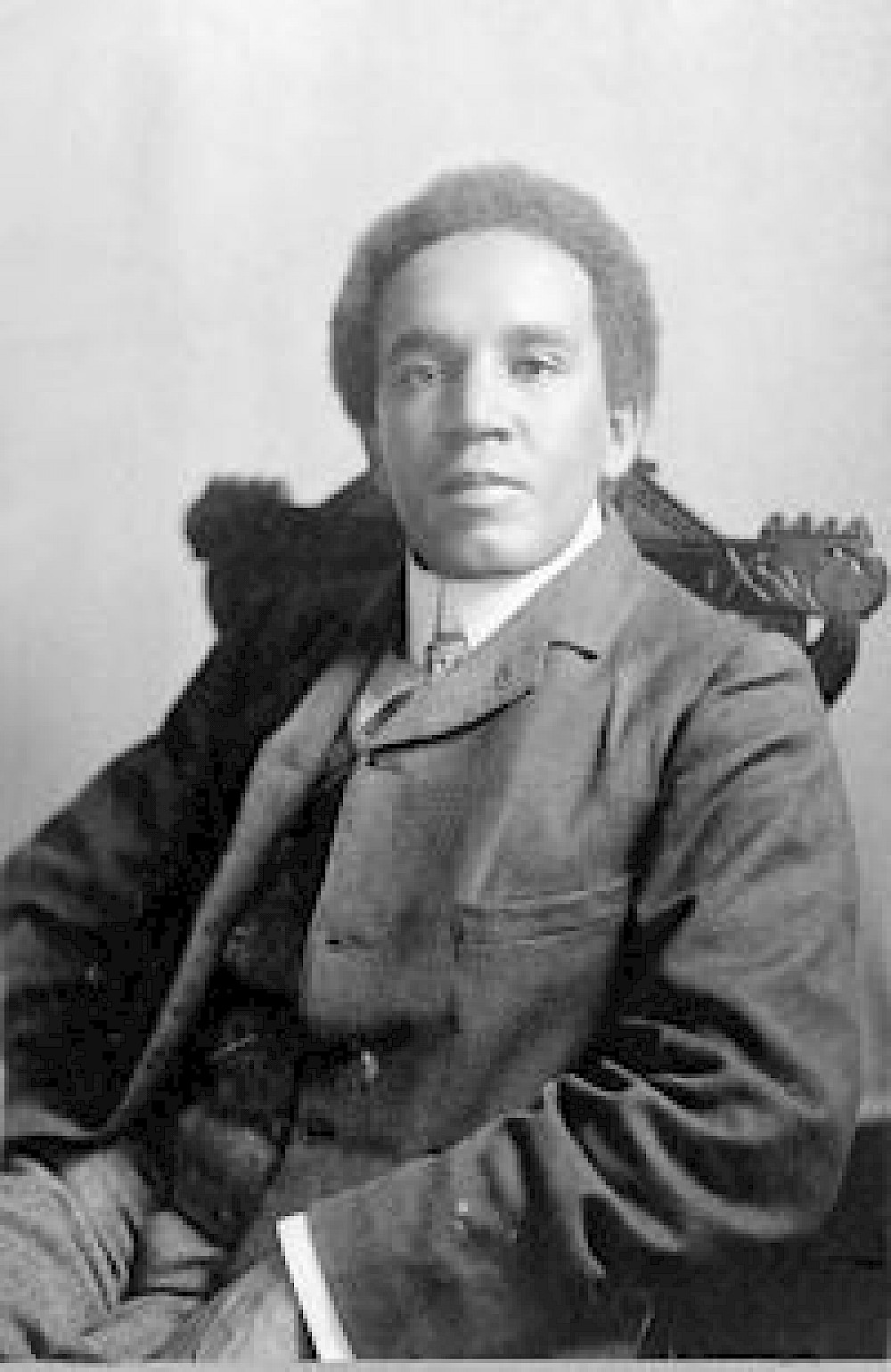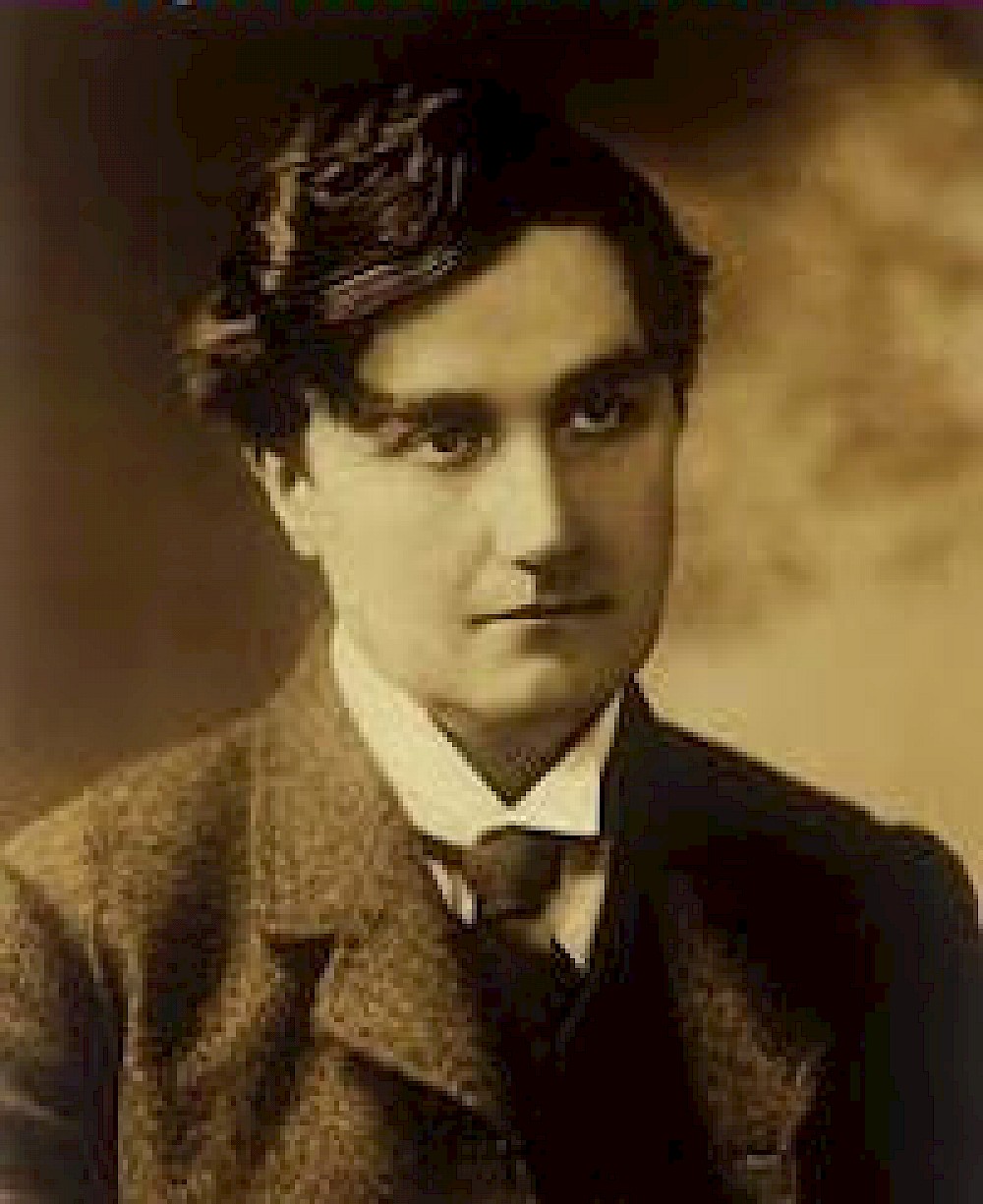

Irish-born Anglican Charles Villiers Stanford became Sullivan’s successor in Leeds, lasting until 1910. He was already conductor of the Leeds Philharmonic Society, where he was known to be exacting, and was fond of nautical themes and Irish folk music. His church music is still important amongst Anglican compositions. He conducted Samuel Coleridge-Taylor’s new cantata The Blind Girl of Castel Guille, based on the Longfellow poem, in 1901. Stanford had taught composition to Coleridge-Taylor at the Royal College, and had conducted the first performance of Hiawatha’s Wedding Feast. The Chorus at this and the Festivals 1901-4-7 was drawn from Leeds singers only. Stanford championed The Dream of Gerontius, facing some opposition from the Festival Committee.
The 1904 the programme contained works specially written by Sir Alexander Mackenzie, Henry Walford Davies (whose cantata Everyman, taken from the morality play, caused a sensation) and Charles Wood’s Ballad of Dundee. A Short Work for Orchestra and Chorus by Joseph Charles Holbrooke, often known as ‘the Cockney Wagner’, was produced for the first time. Stanford was represented by a new Violin Concerto and by Five Songs of the Sea with Chorus written for the Festival, and Elgar by an overture – In the South.

In 1907 six new works were included, all by English composers. They were Stanford’s Stabat Mater, Somervell’s Ode for Baritone Solo and Chorus, Intimations of Immortality, Arthur Herbert Brewer’s In Springtime, which used a male voice chorus, Toward the Unknown Region by Ralph Vaughan Williams, described as a Song for Chorus and Orchestra, Two Folk Songs, with Variations, for Unaccompanied Chorus, by Rutland Boughton, and a Poem for Chorus and Orchestra, Sea Wanderers, by Granville Bantock.
Sergei Rachmaninov travelled to Leeds in 1910 to conduct his Second Symphony and to play in his Second Piano Concerto, Stanford produced his new Songs of the Fleet, and Ralph Vaughan Williams brought A Sea Symphony, his first and his longest symphony, subtitled A Song for All Seas, All Ships, on which he had been working for the previous eight years. Its first performance is often described as the beginning of a new era in choral music in England in the first half of the twentieth century. The composer conducted it on his birthday: he was thirty-eight. The inspiration for A Sea Symphony came largely from Walt Whitman’s Leaves of Grass. Whitman’s poetry had been popular in Britain for several decades (described by the term Whitmania), most of it in bowdlerized selections, and the composer valued highly the democratic idealism and transcendant agnosticism in it. Another ardent Whitman admirer was Parry, Vaughan Williams’s principal teacher. The Chorus was drawn from Leeds and from elsewhere in the West Riding, and sectional rehearsals were held in Leeds and Huddersfield. The Manchester Guardian critic wrote that the symphony

Stanford (who had persuaded the Leeds Committee to accept it) told everyone he knew that he loved it.
Sir Edward Elgar was one of the conductors in 1913, along with Arthur Nikisch, who was conductor of the Leipzig Gewandhaus and the Berlin Philharmonic, and Sir Hugh Allan. Chorus arrangements were the same as at the previous Festival. There were four new works, A Symphonic Study for Orchestra, Falstaff, by Elgar, Butterworth’s A Shropshire Lad for orchestra, On a May Morning, for Chorus and Orchestra, by George Butterworth, and The Mystic Trumpeter, for Baritone Solo and Chorus, by Sir Herbert Hamilton Harty. The Dream of Gerontius finally made its Festival debut at the 1913 Festival, with contralto Muriel Foster, tenor John Coates and bass Robert Radford. Elgar was most impressed with Foster, describing her as “without equal” in the role of Gerontius’s guardian angel. (The contralto part in his 1903 oratorio, The Apostles, was written with her in mind.)
Plans were begun for a Festival in 1916, but they had to be abandoned because of the Great War. There was no Festival in 1919 either.